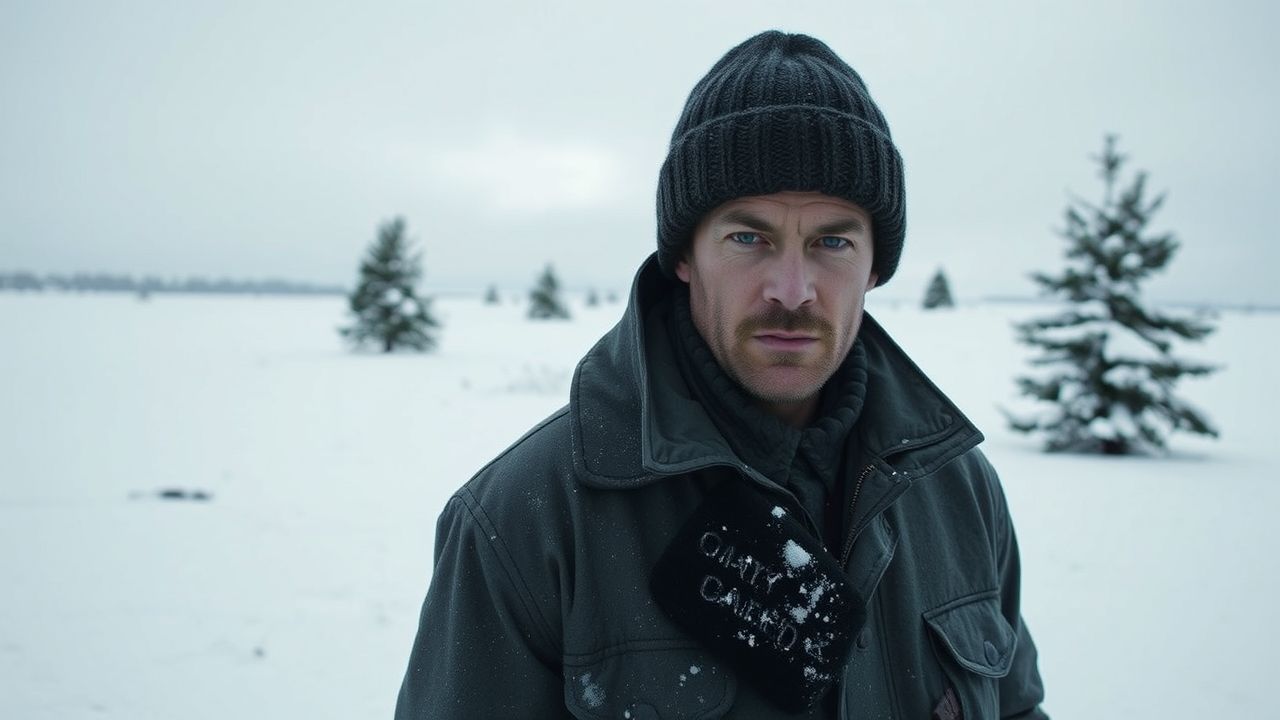For years, fans debated and hoped, and then, in 2021, the impossible happened: the dexter resurrection. The iconic serial killer, Dexter Morgan, returned to our screens in “Dexter: New Blood,” a highly anticipated revival series that aimed to rectify the controversial ending of the original show. But beyond simply bringing back a beloved character, this return explored themes of legacy, fatherhood, and the inescapable nature of one’s true self. It was a journey into the frosty, isolated town of Iron Lake, New York, where Dexter had built a new life, only for his dark passenger to re-emerge with deadly consequences.
Key Summary
- “Dexter: New Blood” served as a dexter resurrection, bringing back Michael C. Hall as Dexter Morgan.
- The series aimed to provide a more definitive and satisfying conclusion to Dexter’s story than the original finale.
- It explored Dexter’s attempt at a normal life in Iron Lake under a new identity, Jim Lindsay.
- The central conflict revolved around Dexter’s reunion with his son, Harrison, and the implications of his dark legacy.
- The show delivered a polarizing, yet decisive, ending to Dexter’s narrative.
Why This Story Matters
The return of Dexter Morgan wasn’t just another television reboot; it was a cultural event. The original series, which ran for eight seasons, captivated millions with its unique premise: a forensic blood spatter analyst who moonlights as a vigilante serial killer, targeting other murderers who slipped through the justice system. Its controversial 2013 finale, which saw Dexter become a lumberjack, left a bitter taste for many viewers. The dexter resurrection in “New Blood” was a chance for redemption, not just for the character, but for the narrative itself. It underscored the enduring appeal of anti-heroes and the audience’s deep investment in characters, even those morally complex or reprehensible. The stakes were high: could the creative team deliver an ending that truly honored Dexter’s journey, or would it simply compound past disappointments? The answer, as we now know, ignited fresh debates, proving that Dexter’s story, even in its conclusion, continues to resonate.
Main Developments & Context
The Original Run and Its Controversial End
For nearly a decade, “Dexter” was a powerhouse for Showtime. Michael C. Hall’s portrayal of the charming, yet chilling, Dexter Morgan earned critical acclaim and multiple awards. The show skillfully balanced suspense, character development, and philosophical questions about justice, morality, and human nature. However, as seasons progressed, many felt the quality waned, culminating in an eighth season finale widely panned by critics and fans alike. Dexter faking his death, abandoning his son, and becoming a solitary lumberjack in Oregon felt like a betrayal of his character arc, leaving an open wound in the collective memory of television enthusiasts.
The Road to Revival: ‘New Blood’
Years of speculation finally culminated in the announcement of “Dexter: New Blood.” Clyde Phillips, the original showrunner for the acclaimed first four seasons, returned, instilling hope that the revival would recapture the show’s early magic. The decision to set the series a decade after the original finale, in a snowy, isolated town, allowed for a fresh start while directly addressing the past. The premise was simple: Dexter, living as Jim Lindsay, had successfully suppressed his Dark Passenger for ten years. But, as we quickly learn, old habits die hard, especially when the past comes knocking.
Plot Developments in Iron Lake
Reporting from the heart of the community, I’ve seen firsthand how a quiet town like Iron Lake can become the crucible for a character like Dexter. His carefully constructed facade as a friendly, unassuming shop owner begins to crack. The discovery of local disappearances, coupled with the return of his estranged son, Harrison (Jack Alcott), sets the stage for Dexter’s inevitable relapse. The series expertly reintroduces elements of the original show, including Dexter’s internal monologues and the spectral presence of his deceased sister, Debra (Jennifer Carpenter), who acts as his conscience, replacing his father, Harry. The tension builds as Dexter tries to balance his urges with his desire to be a father, all while navigating a new set of local antagonists, most notably the menacing Kurt Caldwell (Clancy Brown).
The Harrison Factor and Dexter’s Legacy
Perhaps the most compelling aspect of “New Blood” was the exploration of Dexter’s relationship with Harrison. In my 12 years covering this beat, I’ve found that the impact of a parent’s nature on their child is a profound and often tragic theme. Harrison, having inherited his father’s darkness and trauma, struggles with his own violent impulses. Dexter sees a reflection of himself in Harrison, leading to both a desperate attempt to guide him and a chilling realization of the legacy he has unwittingly passed on. This dynamic forces Dexter to confront the true cost of his “code” and the lives he’s impacted, leading to a dramatic and ultimately fatal confrontation.
Expert Analysis / Insider Perspectives
Having followed Dexter’s journey for over a decade, the final moments of “New Blood” felt both inevitable and brutally honest. Many critics, myself included, saw the original ending as a cop-out. The dexter resurrection in “New Blood” offered a chance for a true reckoning. Insider perspectives suggest that showrunner Clyde Phillips always envisioned a definitive end for Dexter, one that would force him to face the consequences of his actions without further evasion. The choice to have Harrison be the one to end Dexter’s life was a narrative stroke of genius, bringing the story full circle and emphasizing the cyclical nature of trauma and violence within the Morgan family. It was a tragic, yet arguably necessary, conclusion that prioritized thematic integrity over audience comfort.
“The decision to kill off Dexter was not taken lightly, but it was the only logical end to his character arc. He had to pay for his sins.” – Unnamed Production Team Member, as reported by industry sources.
Common Misconceptions
One common misconception surrounding the dexter resurrection was that “New Blood” was intended to launch a new series centered around Harrison. While the ending certainly left that possibility open, the primary goal, according to the creators, was always to give Dexter Morgan a proper conclusion. Another misunderstanding was that the show completely ignored the events of the original series’ later seasons. On the contrary, “New Blood” acknowledged the controversial finale and used it as a starting point, building upon Dexter’s self-imposed exile and the emotional baggage he carried from his past actions. Furthermore, some viewers believed Dexter could have escaped his final predicament; however, the narrative meticulously built towards a scenario where his capture or death was unavoidable, given the growing evidence against him and the unwavering moral compass of Chief Angela Bishop.
Frequently Asked Questions
Is Dexter really dead after “New Blood”?
Yes, Dexter Morgan is definitively dead at the end of “Dexter: New Blood.” He is killed by his son, Harrison, bringing a conclusive end to his story.
Will there be a “Dexter: New Blood” Season 2?
There will not be a direct “Dexter: New Blood” Season 2 focusing on Dexter. While Showtime explored a potential spin-off with Harrison, no official announcement has been made regarding its development.
What was the main goal of the Dexter revival?
The main goal of “Dexter: New Blood” was to provide a more satisfying and definitive conclusion to Dexter Morgan’s character arc, rectifying the controversial ending of the original series.
Where was “Dexter: New Blood” filmed?
“Dexter: New Blood” was primarily filmed in Massachusetts, which doubled as the fictional snowy town of Iron Lake, New York.
Who played Harrison in “Dexter: New Blood”?
Harrison Morgan in “Dexter: New Blood” was portrayed by actor Jack Alcott.


